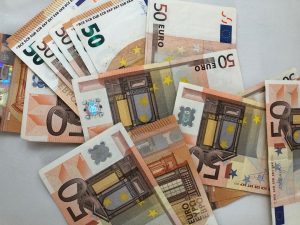Forex or foreign exchange is the global marketplace for trading currencies. Forex trading involves buying and selling currencies in pairs, such as EUR/USD, GBP/USD, or USD/JPY. In forex trading, a trader can either go long or short on a currency pair. Going long means buying a currency pair, while going short means selling a currency pair. In this article, we will explore in-depth how a forex trade works against the trader.
Forex trading is based on the principle of supply and demand. The price of a currency pair is determined by the market forces of supply and demand. When there is more demand for a currency, its price goes up, and when there is more supply, its price goes down. Traders make a profit or a loss based on the difference between the buying and selling price of a currency pair.
When a trader goes long on a currency pair, they are betting that its price will rise in the future. For example, if a trader buys the EUR/USD pair, they are betting that the euro will appreciate against the US dollar. If the euro does appreciate, the trader will make a profit. However, if the euro depreciates, the trader will incur a loss.
On the other hand, when a trader goes short on a currency pair, they are betting that its price will fall in the future. For example, if a trader sells the GBP/USD pair, they are betting that the pound will depreciate against the US dollar. If the pound does depreciate, the trader will make a profit. However, if the pound appreciates, the trader will incur a loss.
When a forex trade works against the trader, it means that the market has moved in the opposite direction of their trade. For example, if a trader goes long on the EUR/USD pair, and the euro depreciates against the US dollar, the trade will work against the trader. In this case, the trader will incur a loss.
There are several reasons why a forex trade can work against the trader. One of the main reasons is market volatility. Forex markets can be highly volatile, and prices can change rapidly due to various economic and political events. For example, a sudden change in interest rates or a political crisis can cause a currency to depreciate rapidly.
Another reason why a forex trade can work against the trader is due to a lack of market knowledge or analysis. Forex trading requires a deep understanding of market trends, technical analysis, and economic indicators. A trader who lacks this knowledge may make incorrect trades or fail to spot market trends, which can lead to losses.
Lastly, forex trades can work against the trader due to emotional trading. Emotional trading refers to making trades based on fear, greed, or other emotions, rather than sound analysis. Traders who are emotionally attached to their trades may fail to cut their losses or take profits at the right time, leading to losses.
In conclusion, forex trading involves buying and selling currencies in pairs. When a forex trade works against the trader, it means that the market has moved in the opposite direction of their trade. This can happen due to market volatility, a lack of market knowledge or analysis, or emotional trading. To be a successful forex trader, one must have a deep understanding of market trends, technical analysis, and economic indicators, and must be able to control their emotions when making trades.






